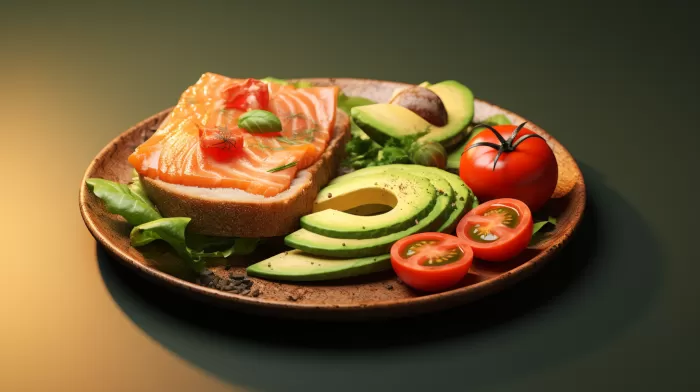High-protein diets such as the popular Atkins diet might help you shed some weight, but they can also come with an alarming number of health risks. These diets help you lose water weight initially as the body begins burning off its own fat stores, a process known as ketosis. While this may leave you feeling full and satiated, it can lead to negative side effects like headaches, nausea, kidney issues, health palpitations, and irritability. It’s important to maintain a healthy weight for the sake of your prostate and heart health, as risks of prostate cancer and enlarged prostate due to benign prostatic hyperplasia (BPH) increase with obesity. However, high-protein diets might actually increase these risks, defeating the purpose.
Risks associated with high-protein diets include malnutrition, prostate cancer, increased cholesterol, heart attack, stroke, osteoporosis, type 2 diabetes, kidney disease, and inflammation. Therefore, it’s essential to focus on long-term, well-rounded diets that promote overall health, not just weight loss.
The American Heart Association doesn’t recommend high-protein diets because of their tendency to increase cholesterol levels and the risk of heart attack. High-protein diets are also low on nutrients and fiber that you’d normally obtain from fruits, vegetables, and grains. It’s also important to note that meat, especially when grilled at high temperatures, has been linked to an increased risk of prostate cancer.
How Much Protein Do You Need?
The Recommended Daily Allowance (RDA) suggests consuming 0.8 grams of protein per kilogram of body weight. For example, a 150-pound adult male should eat approximately 54 grams of protein per day, with this number increasing if the individual is more active or weighs more.
Healthier Alternative Diets For Prostate Health
The Prostate Diet focuses on whole body health as well as prostate health. It consists of fruits, vegetables, healthy fats, plant protein, fiber, green tea, and cancer-fighting foods like tomatoes and cayenne. This diet also emphasizes high-quality carbohydrates while eliminating sugar. Many Prostate Diet foods are also consistent with the Mediterranean diet, another long-term, healthy eating plan.
The Mediterranean diet can make you feel fuller and more satisfied for longer periods due to its high content of fiber and healthy fats from nuts, olives, olive oil, avocado, and fish. It also provides plenty of variety and doesn’t require giving up favorite food items like produce, pasta, or whole grain bread. Both the Mediterranean and Prostate Diets allow protein sources of meat, but they emphasize healthful proteins such as lean cuts of meat low in saturated fat, and fish high in omega-3 fatty acids.
Fish like salmon and tuna, which contain high levels of omega-3 fatty acids, are beneficial for men’s prostate and heart health. These essential nutrients can also help protect against prostate cancer, arthritis, and heart disease. Both diets encourage the consumption of plant-based proteins from high-fiber foods like beans, lentils, quinoa, and fermented soy products.
Regardless of which diet you follow, be sure to include foods suitable for men over 40. In addition to promoting heart, brain, joint, bone, prostate, and sexual health, these foods can help with your weight loss plan and provide your body with antioxidants and phytonutrients to combat cancer and other illnesses. It’s also wise to consider supplements as part of your diet, as they can promote a healthy prostate size and urinary health, which are common issues for men as they age.
One such supplement is Prost-P10x, which contains 12 natural ingredients shown to reduce inflammation and symptoms associated with prostate disorders. Incorporating prostate health supplements into your routine can help maximize your prostate function and other aspects of your sexual health.
This year, consider following the Mediterranean or Prostate diet when looking to improve your overall health. Focusing on overall health, including prostate and heart health, can have significant long-term benefits.



